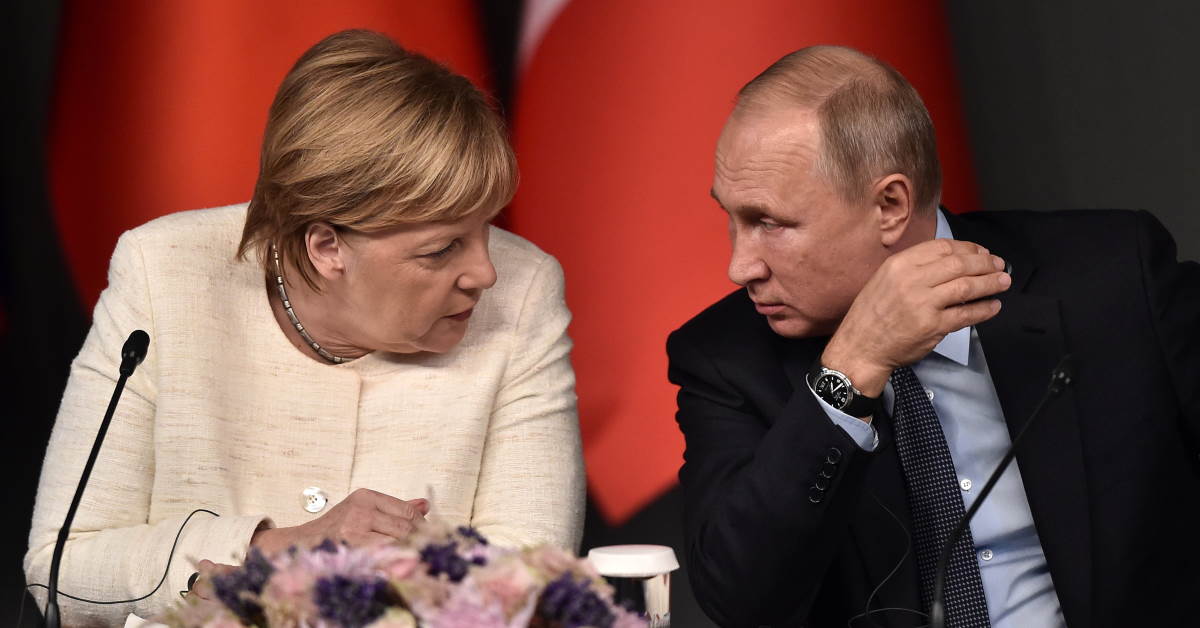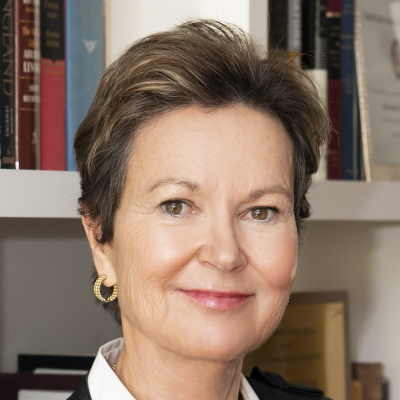As a horrified world searches for a way to stop Russian President Vladimir Putin’s brutal war against Ukraine, there is one person who might be able to get through to the Kremlin’s dangerously isolated autocrat. Angela Merkel, until recently chancellor of Germany, held Putin to some degree of good behaviour during her 16 years in office, including by blocking his first attempt to seize Ukraine in 2014.
Merkel has unique qualities, and a shared history with Putin unmatched by any other world leader. She should be persuaded to come out of retirement to help rescue the international order she fought to uphold during her time in office.
Putin and Merkel’s complicated relationship began on 9 November, 1989, with the fall of the Berlin Wall. That event marked Merkel’s liberation from the East German police state that had confined her for her first 35 years. She soon shed her scientist’s white coat and joined the Christian Democratic Union, later becoming the party’s leader and then Germany’s first woman chancellor.
For Putin, November 1989 and the subsequent collapse of the Soviet empire he served – which he called “the greatest geopolitical catastrophe of the [twentieth] century” – ended his career as a KGB officer in East Germany. Two years apart in age, and products of the same Soviet era, Merkel and Putin have a clear-eyed understanding of each other. They literally and figuratively speak each other’s languages.
After Merkel became chancellor, Putin subjected her to various KGB techniques to test her mettle. Knowing her fear of dogs, he unleashed his large black Labrador near her at a 2007 meeting. Merkel did not flinch. “He has to do this to show his manhood,” she later said. “He tests you all day and if you don’t resist you become smaller and smaller.”
Merkel, whose background had prepared her for Putin’s capacity for cruelty and deception, did not become smaller. In their many interactions, she simply ignored his staged outbursts and menacing silences.
Although Merkel found Putin alarmingly detached from reality already in 2014, she pressed on, sometimes for 15 hours at a stretch, in search of an inch of common ground regarding Ukraine. In such situations, she said, “I am as focused as a tightrope walker, only thinking about the next step.”
Putin stayed at the table and eventually agreed to halt his aggression after Russia had annexed Crimea and occupied parts of Ukraine’s eastern Donbas region. For Merkel, a frozen conflict was always better than all-out war.
Her method during their many hours negotiating was to let Putin bluster uninterrupted. When he finished, Merkel would repeat what he had just said in almost childlike language, draining both drama and much sense from his explosion. “Vladimir,” she would assert, “this is not how the world sees things.”
Merkel’s icy calm was backed up by a mastery of battlefield details. “I think I know every tree in Donbas,” she once said of the war zone. She pressed Putin to state his goal with precision, and then offered a few steps to get him there. With her scientific training, and free of ego, ideology, and emotion, she broke down his grandiose schemes to their smallest, most manageable parts. “What counts is finding solutions,” she often said.
Insofar as Putin is capable of trust, he trusts Merkel, who not only has no remaining political ambitions but also has never publicly denigrated him or divulged the contents of their many private exchanges. Known to admire Russian culture, Merkel never referred to Russia as a “regional power,” as former United States (US) President Barack Obama once did.
Two months after she left the chancellery, Putin launched the full-scale war she had prevented in 2014. With Merkel gone, her successor, Olaf Scholz, untested, and the US bitterly polarized thanks to former President Donald Trump, Putin likely calculated that he might finally reverse the “catastrophe” that began in 1989.
But Merkel, too, had miscalculated. A cautious politician, she allowed German business interests to hold sway and failed to halt the (now suspended) Nord Stream 2 pipeline, which would have transported gas directly from Russia to Germany via the Baltic Sea. Nor did she increase Germany’s defense budget sufficiently to meet a growing security threat.
Merkel despises war and considers recourse to it an utter failure of statesmanship. Yet, with war now raging in Ukraine, Europe and the West have been plunged into the post-Merkel era with no clear end in sight.
Merkel is possibly the only person on the planet who neither fears, openly holds in contempt, nor is beholden to Putin, and whom he also appears to respect. Given their long-shared history, Putin would be unlikely to relegate Merkel to the opposite end of that comically long Kremlin table where he has recently seated other heads of state to telegraph his lack of interest in serious negotiation.
Putin takes Merkel seriously and – as isolated as he is – must at some level realize that he needs help climbing down from his high and precarious tree without suffering the total loss of face that he dreads and is ready to spill more blood to avoid. Merkel, who knows Putin better than any other world leader does, might help him. With her supreme calm, she might admonish him one final time: “Vladimir, this savage war is not in your interest.”
It is a long shot, of course, but the world order of which Merkel was the most stalwart defender hangs in the balance. The stakes are high enough to take the gamble.

